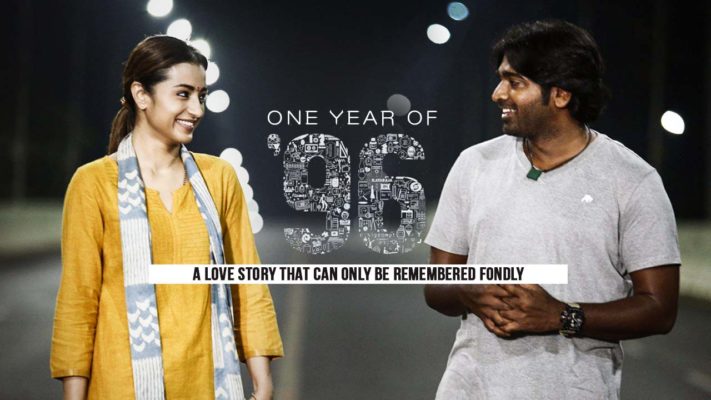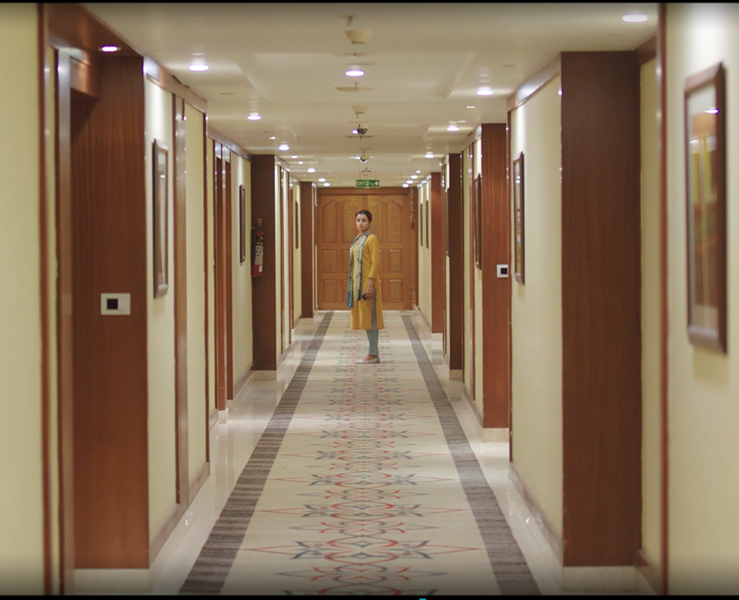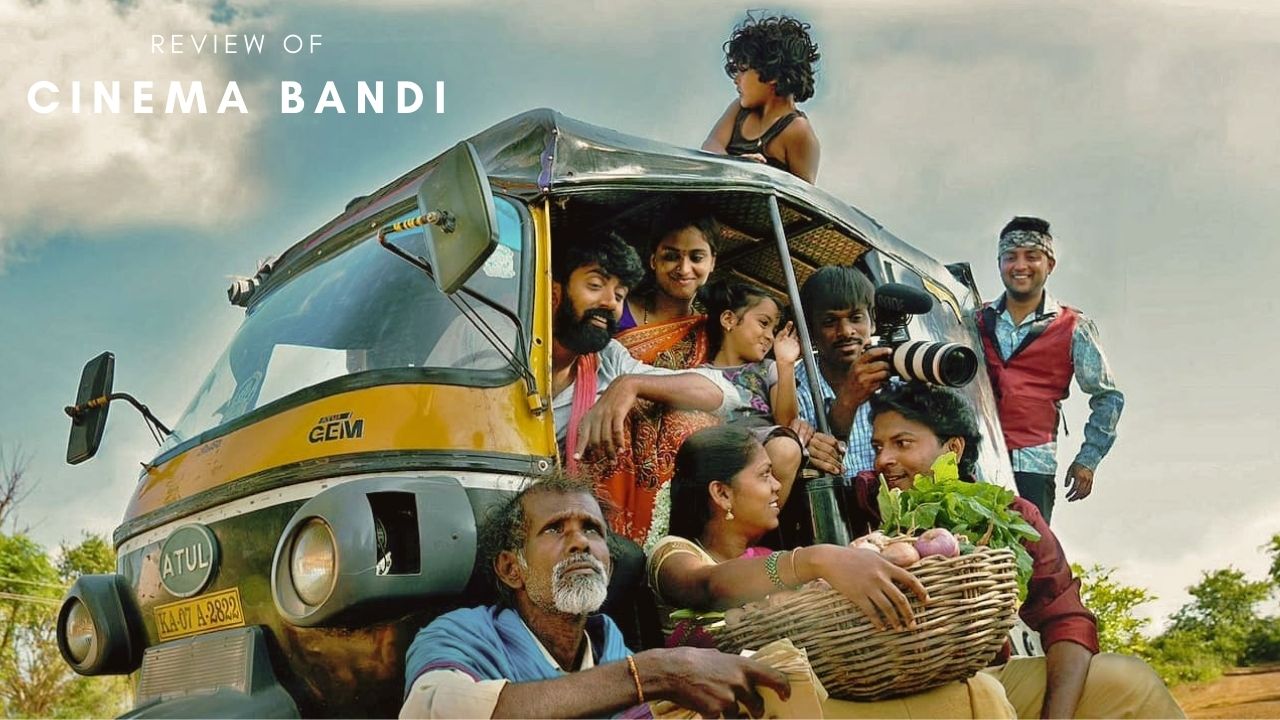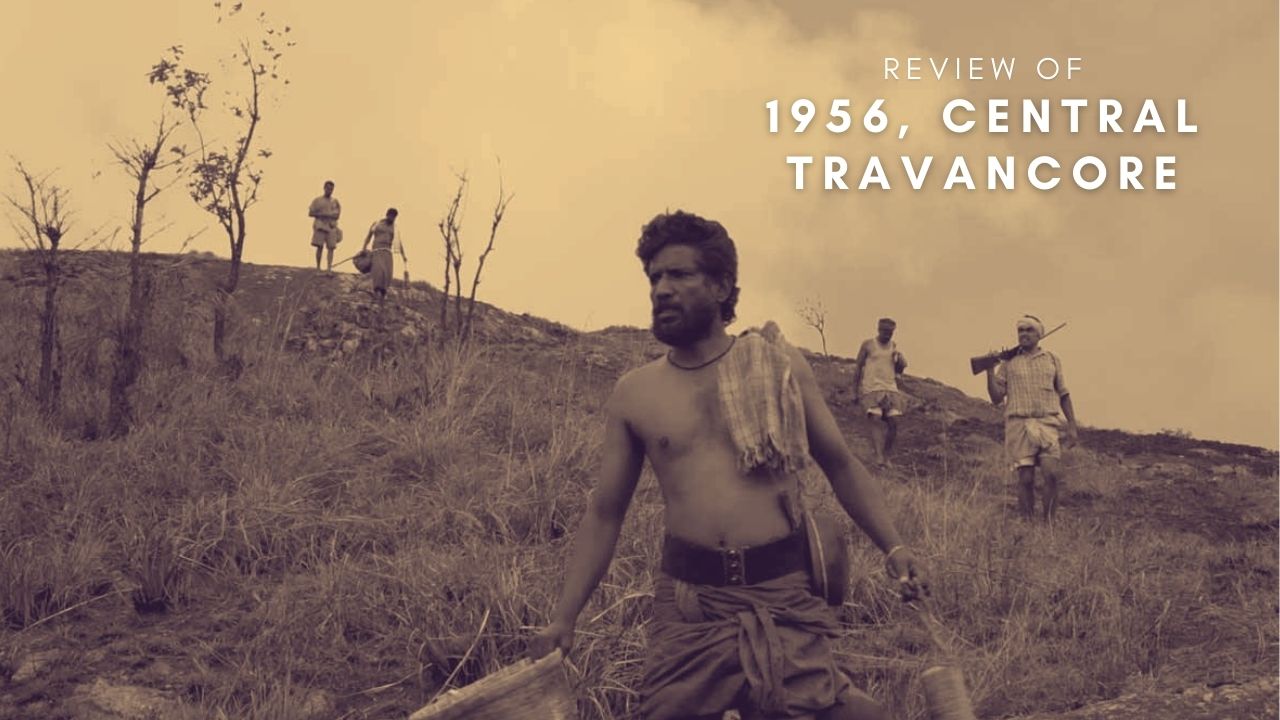
96 Is The 90’s Love Story That Today’s Generation Might Not Understand But Only Imagine
96, a Tamizh film written and directed by Prem Kumar released last autumn and is extremely special to me for innumerable reasons. I vividly remember how disappointed I was when I found out that 96 was not going to release in Hyderabad and immediately booked tickets to Madras to watch it. It was a Tuesday, I wish it was rainy but it was rather too sunny at 5 in the evening, unsurprising, I know. I rushed to Sathyam Cinemas (Obviously!) in an overpriced auto ride and found my seat exactly when Ram dives into the sea to shoot photos underwater. I’m still trying to get over the fact that I missed the titles and “trying” to mend this “latecomer” habit of mine. The theatre was full, swarmed by enthusiastic teens, middle-aged couples, wise people in their 60’s and me, full of hope.
Starring Vijay Sethupathi and Trisha Krishnan in lead roles, 96 follows the story of Ram and Janu. You forget everything when you watch these two on the silver screen. They bring immortality to ram and Janu that nobody I think could have achieved or embodied. You forget everything about these terrific personalities and just dwell into these 2 characters – Ram and Janu and that according to me, is the epitome of acting and performance. It’s the characters that keep you engaged beyond the magnanimity of the actors. The film traces the journey of Ram and Janu, two lost souls on a starry night who find the truth behind their inevitable tragic love story. You might assume isn’t this similar to the ‘Before Sunrise’ premise but trust me when I say this, this film is beyond love, its much more platonic and poetic, it’s a trip down memory lane for every 90’s kid, it’s nostalgic, heart-wrenching and leaves you teary-eyed.
(Spoilers ahead)
மாற்றங்கள்வினா, மாற்றங்களேவிடை (Mattrangal Vina, MaattrangalaeVidai)
Change is the beginning; Change is the end and this is exactly what the film is all about, though it takes quite an amount of time of pondering. A strict photography teacher decides to visit his hometown while he is on his way back home from a field trip, and reminisces his past; he takes a detour to this historic town, Thanjavur. He makes fun of his millennial student and enthusiastically “shows-off” his town like a kid. His heart skips a beat when he sees a river-bridge, and you immediately know a life-changing moment happened on that very place a couple of decades back. It’s wonderful how a single location can instigate a mixture of emotions within our very being. This scene reminds me of my family trip with Amma and my sisters and she had the exact same delight each time she described the PeriyaKovil, Saraswathi Mahal, Bell Tower and many more historic treasure and architecture left behind by the Chozhas, Pallavas and the British. I can’t help but wonder at the various memories rushing through Amma’s mind; how a little girl in her early teens would have never imagined her roller-coaster of a life filled with struggles, tragedies, bitter-sweet happiness, and 3 monstrous daughters.
I felt envious of the pride she held for the town she grew up in because I knew I could never feel the same as I grew up in the city, but this town definitely changed the very tectonic plates in my world. I fell in love with Tamizh’s ancient history and culture and that’s the kind of pride I’m still holding onto with all my life.
Ram asks his student to stop outside his school and scares away his school watchman, just for old times’ sake. The casual banter between the school watchman, Kaaval Dheivam played by the evergreen, sorry, ever-hilarious actor – Janakaraj and K. Ramachandran. The school, All Saints, is a character in itself where two teenagers’ lives changed forever and destiny had different plans for them altogether. Ram feeling the wood in the class benches, looking up for his name in the winner’s “board” of fame and those staircases that were witnesses to those innocent glances of love and also, the desperation of a lover. Ram reaches out to his school friends and they all decide to have a reunion of the “96” batch three months later at Madras. The reunion, is such a symbolic event in this film, as it reunites two souls separated by fate and united by love and friendship after 20 years. History pays a visit like an uninvited guest but like everything else we love in life, vanishing away before you relish the moment, only to value its absence.
Janu arrives late in the evening and awakens the crowd like any other but you know, deep down in your heart, what her eyes are searching for. Behind those smile enriched greetings and chitchat, her soul is in search of her beloved, the one she couldn’t have while Ram is lurking in the corner, snatching glimpses, a balloon held in his hand, nervously excited like a child. After various attempts, Janu decides to confront Ram and just like old times, his heart skips several beats actually and he descends into an abyss, with just her touch. Their friends realize the prolonged silence and quietly give them privacy these two are craving for. The delicate decency that runs throughout the film is impeccable and the etiquettes create a classy-ness that you wish would transcend to your real life.

The Relevance Of Janu’s Songs, Carefully Chosen To Depict The Stages Of Love, Friendship and Heartbreak
Janu’s presence lights up the entire reunion like the rise of the Sun after a stormy night. A speech by Janu acts like a prelude to a soulful rendition of Thendral Vandhu (Ilaiyaraja) by none other than Chinmayi Sripada. Each song carries a certain relevance to the scene- for example, Thendral Vandhu depicts the time that has passed by and created an invisible distance between these people and another being, Chinna China Vanna Kuyil sung by Janu in the classroom portrays the transition of their friendship that blossomed into love. Throughout the film, Ram desperately asks her to sing Yamunai Aatrile from Thalapathy but every single time, she evades his shyly conveyed third-person requests and sings a song of her liking. She expresses proudly that she will perform his favourite only when Ram asks her face-to-face. During the climax, Janu singing YamunaiAatrile in the dark and Ram searching for a flashlight to catch a glimpse of her face is the epitome of their platonic love for each other, with their eyes gleaming of purity and innocence.
The reunion ends on a happy note and the five friends- Janu, Ram, Subhashini (Devadarshini), Sathish (Bagavathi Perumal AKA Bucks) and Murali (Aadukalam Murgadoss) go out for a cup of filter kaapi when a pregnant Subha gets agitated and has a throbbing pain in her head, a typical South Indian solution to headaches. While watching Trisha sipping filter kaapi at Moonrakers Café, there was a nostalgic rush I had, recollecting a similar montage in Vinnaithaandi Varuvaaya (VTV by Gautham Menon) which released almost a decade back and how Jessie and Janu are two different people but one soul. The amount of maturity they possess is similar and they deal with heartbreak so elegantly, that it is painfully beautiful to watch.
The Writing Is So Neat In Terms Of Language, Metaphors And Jibes
Premkumar’s usage of Tamizh words feels so refreshing and heart-warming at the same time. Whereas, on the other side of the spectrum, Tamizh dialogues are more or less urban and are slowly, its essence fading away with different slangs muddling with one another. It is truly commendable how Premkumar unabashedly flaunts his “Thanjuvur Baashai” (Thanjavur slang) and the diction and nuances he gets out of each character is satisfying for a Purist like me. It has been so long since I’ve words like Kaataan (Wild person), Olinjipo (Get lost), Kurakka kurakka pesadheenga (Don’t keep interrupting) creating a variety of nostalgic moments. This is prominent even in the way Ram describes the colours of Janu’s saris- Ramar (a shade of blue) colour, Vaadamalli (Violet) colour. The metaphors carry a gratifying sense of humour that I hadn’t heard in a long time. This style of humour and writing argumentative statements are very similar to the ones in Mani Ratnam’s Alaipayuthey, like the exchanges between Bucks- Subha, Subha- Ram and of course, Ram-Janu. There is one dialogue that is intensely rendered by Janu- “Romba dhooram poitiya, Ram?” (Have you gone too far away, Ram?); The literal and metaphorical emphasis that it holds is a long-lost dream being tightly held onto by the two souls in love – Ram and Janu.

Music, Sound Design And Dubbing Complement Each Other, Like Wind, Water And Fire…
Govind Vasantha changes the paradigm of film music by infusing sounds heard on a deserted night, crickets chirping, leaves caressing the midnight air and long-lost whispers of the heart finding its way home. Chinmayi’s dubbing for Trisha, just like in VTV, is soul-stirring and the plethora of emotions she can communicate with her language and voice is truly exceptional and distinct. Trisha’s eyes pierce the silence, speak a thousand words as we slowly uncover the turbulent heartache hidden in her soul, waiting to find its true lost love. It’s saddening that Chinmayi dubbed last for a Tamizh film one year ago, a result of her allegations against lyricist Vairamuthu during the #MeToo movement. I sincerely hope she comes back home, and continue building her legacy. Undeniably, 96 is also a subtle celebration or rather the love for a beautiful singer and dubbing artist. It is evident that Govind Vasanth and Premkumar are in love with Chinmayi’s voice and the different nuances and dimensions she can get into the character’s life.

The 90’s Touch…
96 celebrates the times and trends of the 90’s, bringing in several elements of the previous generation- Ilaiyaraja’s songs sung by Janu, Thalapthy reference when Bucks and Ram catch up at the reunion, casting Janakaraj and Kavithalayaa Krishnan in humorous roles and the radio playing in the background at the saloon. The way the barber explains the navigation routes to an unknown person over the phone is similar to Appa talking to the Domino’s guy who is cluelessly wandering in our maze-like locality. The various topics of discussion between Ram and Janu are sweet like the one about virginity, the innocence and sensitivity of it and how Vijay Sethupathi mocks Trisha turning into a spoilt brat after moving to Singapore. Dialogues like “God promise?”, “Topic eh mathu ennaku puppy shame ah iruku” (Change the topic, I feel puppy shame) reminds us of the superstitious promises we made as a child and the hush-hush talks between siblings/friends about “activities behind closed doors.” Throughout the film, Ram and Janu pour their hearts out sitting idly on a bare floor, sipping on coffee or Janu-cooked meal on a night where destiny decides to reveal itself and the loops it created in these two lovers’ journey.
Silence, Heartbeats and Close-ups…
“Silence is one great art of conversation.” (William Hazlitt)
Premkumar uses the powerful element of silence and depicts their true meanings in long-held close-ups that portray the churnings and tides building up in their hearts. Janu professes the love she had or rather has for Ram and wish they were together if only she knew of his whereabouts. Ram realises she knew nothing of his visits to her college and how a miscommunication led to a separation. The tears forming up in Janu’s eyes when she Ram confesses that he was present at her marriage, watching her from a distance is heart-wrenching and at that moment, you realise, that there is no coming back and confronting destiny was cruel and inevitable for these two souls in love. The film ends on a silent note as well, where Janu is unable to witness Ram’s piercing eyes, at the airport and walks away brushing away tears likes shards of glass stabbing her heart. I feel this is one of the most creatively shot airport scenes in Indian film history, avoiding cliches and bringing about an aesthetic sense to the whole scene, and the ending as well.

96 is this breeze you feel on your face before a thunderous rainy night, petrichor hanging amidst the winds, indicating the beginning of a storm that’s bound to happen and cause destruction. But, despite all of this, you wish to hang on to things the way they were, like in a dream, and never wake up to confront reality, or rather the truth.














